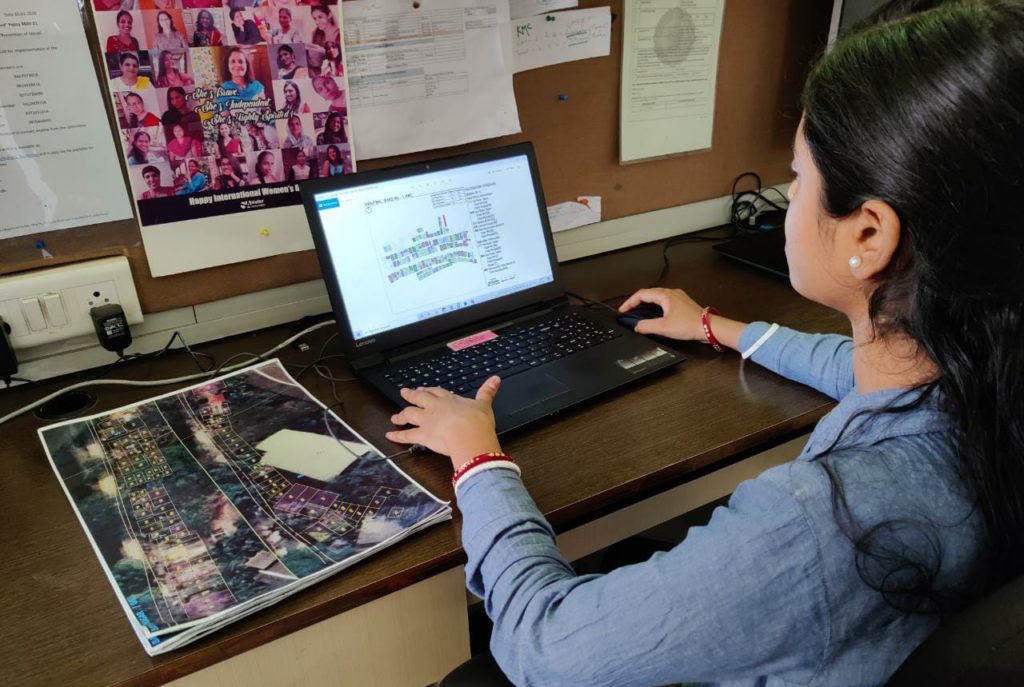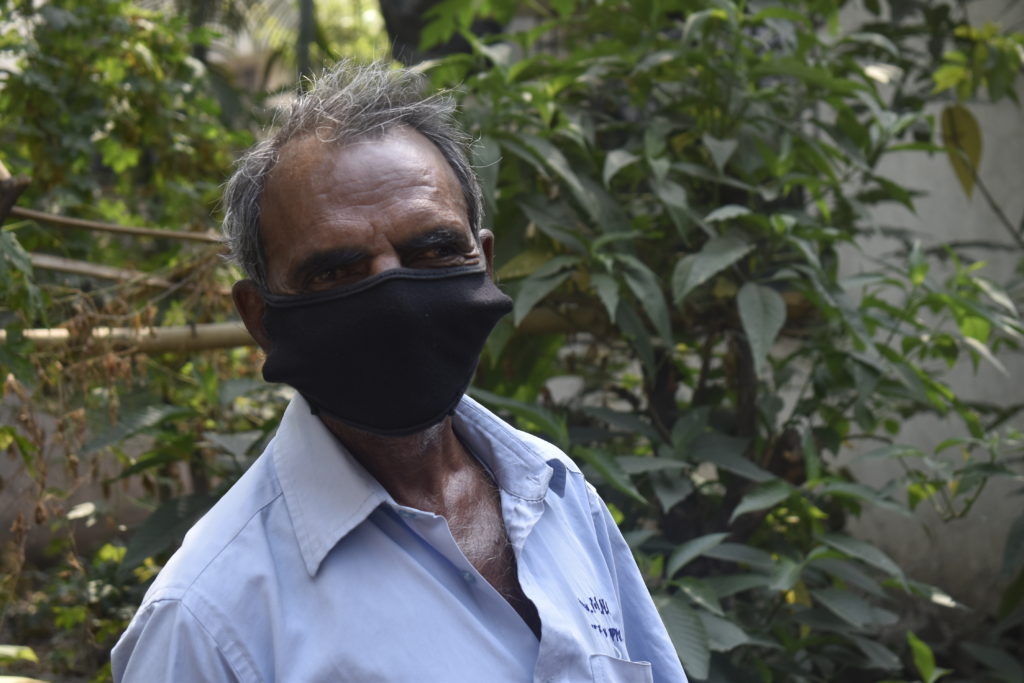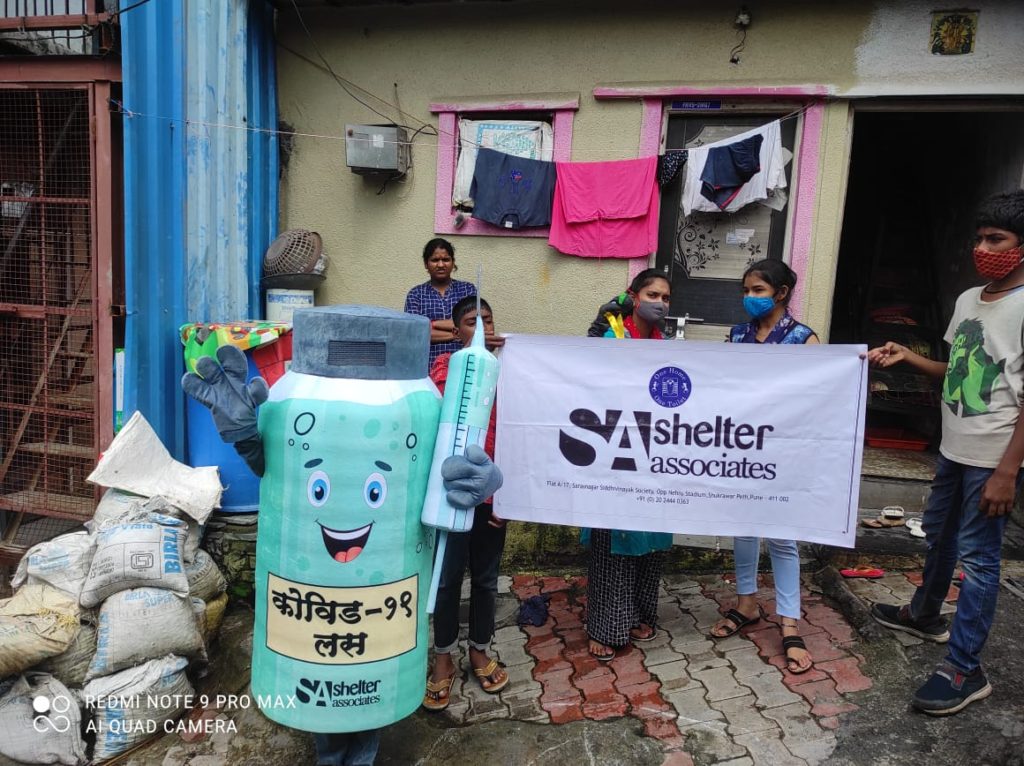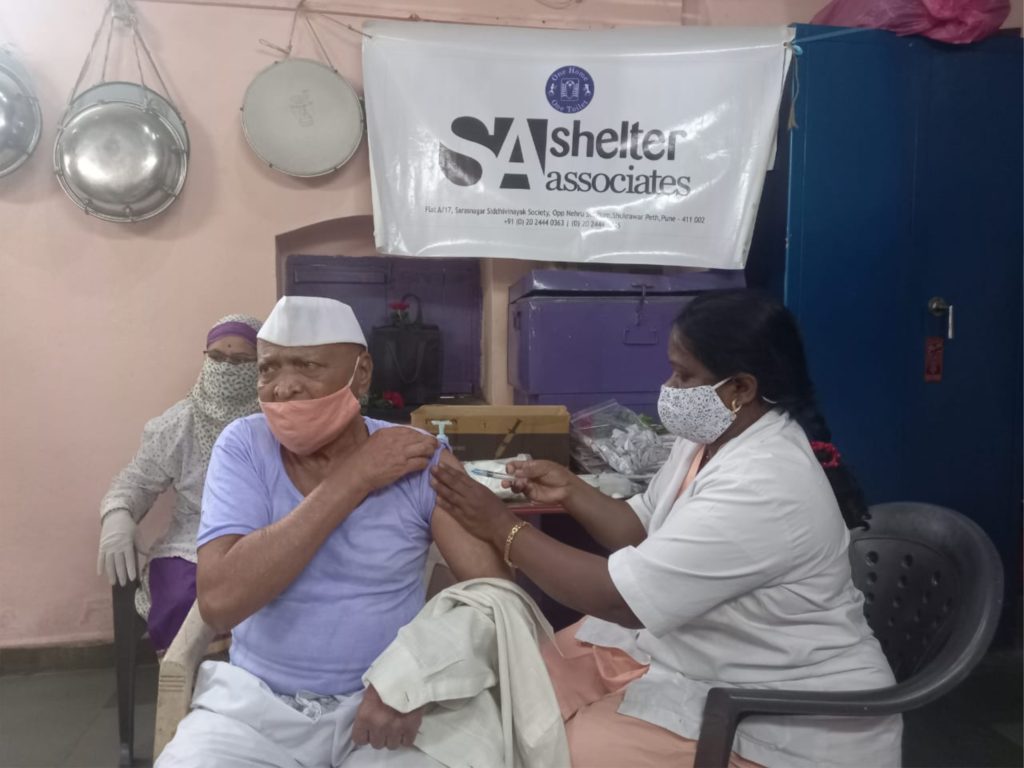COVID19 is still stalking the world and the urban poor residing in informal settlements are struggling to get vaccinated. There are various misconceptions and myths regarding COVID19,and hence there is a pressing need for widespread awareness campaigns to dispel these fears. There is a paucity of information related to vaccination processes which has resulted in low vaccine coverage in slum communities. As a result, it is often assumed that residents in informal settlements are reluctant to receive vaccinations. More than 75% of individuals living in the slums of Pune, Kolhapur, Thane and Navi Mumbai who are above 18 years old are eager to get vaccinated, according to Shelter Associates’ household level survey results. However, vaccination coverage is low. The stumbling block is the online registration process and vaccine availability. In Maharashtra only 30% of the population is vaccinated for the first dose and only 1/3rd of them is vaccinated with the second dose. The lack of adherence to Covid Appropriate Behavior(CAB) guidelines, combined with a lower level of vaccination coverage, are key contributors to the rise of COVID-19 infection in the state. Our focus should be on an effective community-based behavioral change strategy that clears up any vaccination misunderstandings and facilitates online registrations along with community vaccination camps, as well as promoting CAB.

Shelter Associates’ In-house GIS Data and field teams play a very important role in driving the vaccination process. The process followed by the team are as below:
- The team of GIS Analysts map the selected slums of the 4 cities of Maharashtra with the help of a GIS based software.
- Plus Codes (Digital addresses codes) are generated for each house
- On-field community workers at Shelter Associates physically visit each and every slum house and collect raw data through household surveys covering the vaccination details and the families interested for vaccination
- After this process, the data is integrated on a GIS platform and spatially queried. .
The spatial maps generated by the GIS team include details of the number of people who have completed their vaccinations and those who are left behind. Accordingly, detailed planning is done to drive the vaccination camp. Shelter Associates plan on how things can be taken forward to drive the vaccination process smoothly. To register the unregistered for the first dose of vaccine, volunteers residing in slum communities are trained so that none of them are missed out and all get vaccinated.

Once the slum pocket gets finalised, the community co-ordinators at Shelter Associates distribute tokens to the registered individuals. These tokens are then presented at the time of Vaccination Camps for a smooth implementation of the vaccination process. Upon further cross-verification, the pre-registered and spot registered individuals are inoculated by the health officers present during the camp.
Till September 2021, Shelter Associates helped more than 4431 people get vaccinated in Pune and Kolhapur through 16 and 9 vaccination camps respectively. Shelter Associates is making full efforts to raise awareness around the importance of vaccination through a rigorous process of primary surveys and data collation, mobilizing the community people and setting up vaccination camps.

This map is created through spatial data, post vaccination of Ganjimal Settlement of Kolhapur Municipal Corporation. Shelter Associates is rigorously working on the other slums to cater the needy and help them get vaccinated through ground level survey and setting up vaccination camps.



